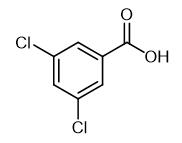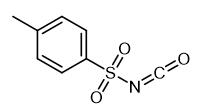Active Pharmaceutical Ingredients (API), popularly speaking, are the raw materials of medicines, only pharmaceutical raw materials are processed into pharmaceutical preparations , can they become medicines available for clinical use, so drugs we usually eat are the finished drugs through processing. Active Pharmaceutical Ingredients based on its sources can be divided into two major categories ,including chemical synthetic drugs and natural chemical drugs. Chemical synthetic drugs can be divided into organic synthetic drugs and inorganic synthetic drugs. Inorganic synthetic drugs are inorganic compounds ( very few is element), such as aluminum hydroxide, magnesium trisilicate which are used for the treatment of gastric and duodenal ulcers ; organic synthetic drugs are mainly composed of drugs made by basic organic chemical raw materials, through a series of organic chemical reactions (such as aspirin, chloramphenicol, caffeine, etc.). Natural chemical drugs ,based on its sources,can be divided into two categories including biochemical drugs and plant chemical drugs. Antibiotics are generally made by the microbial fermentation, which belongs to the biochemistry category. A variety of semi-synthetic antibiotics occurs in recent years,which are biosynthesis and chemical synthesis combining products.Among active Pharmaceutical Ingredients, the organic synthetic drugs varieties, yields and values have the largest proportion,which are the main pillars of the chemical and pharmaceutical industries. The quality of active Pharmaceutical Ingredients decides whether the formulation is good or bad , so its quality standards are very strict ,countries in the world have developed national pharmacopoeia standards and strict quality control methods for its widely used active Pharmaceutical ingredients.
Synthesis and Application of 3,5-dichlorobenzoic acid
3,5-Dichlorobenzoic acid is an intermediate in organic synthesis.
Sep 8,2022 APISynthesis and Application of 6,6-Dimethyl-3-azabicyclo[3.1.0]hexane
6,6-Dimethyl-3-azabicyclo[3.1.0]hexane is a heterocyclic organic compound that can be used as a pharmaceutical intermediate.
Sep 8,2022 APISynthesis and Application of Propionyl chloride
Propionyl chloride is used as a propionyl reagent in organic synthesis.
Sep 7,2022 APIMechanism of action of Atibuclimab
Atibuclimab (IC14) is a chimeric CD14 antibody investigated for the treatment of patients with severe sepsis. It is Investigated for use/treatment in sepsis and septicemia and pneumonia.
Sep 6,2022 APIImportant applications of bis(2-diphenylphosphinophenyl) ether
Bis(2-diphenylphosphinophenyl) ether are used as chelating ligands in various inorganic reactions.
Sep 6,2022 APIGenotoxic of N-(triphenylmethyl)-5-(4'-bromomethylbiphenyl-2-yl)tetrazolium
N-(triphenylmethyl)-5-(4'-bromomethylbiphenyl-2-yl)tetrazolium, is a chemical substance with the molecular formula C33H25BrN4, which is used as an intermediate for the drug irbesartan.
Sep 6,2022 APIThe chemical properties of 1,10-Phenanthroline hydrate
1,10-Phenanthroline hydrate is well known as a bidentate ligand in coordination chemistry.
Sep 5,2022 APIThe viscosity of dimethyl ether
Dimethyl ether (DME) is the simplest ether, without C-C bond. It is one of the hot research areas in energy chemistry and environmental chemistry recently.
Sep 5,2022 APIThe preparation of tenofovir alafenamide fumarate
Tenofovir alafenamide fumarate is a lipophilic prodrug of tenofovir which is preferentially metabolized in lymphatic tissue resulting in high concentrations of tenofovir
Sep 5,2022 APISynthesis and Application of p-Toluenesulfonyl Isocyanate
p-Toluenesulfonyl isocyanate is a synthetic material intermediate.
Sep 2,2022 API











